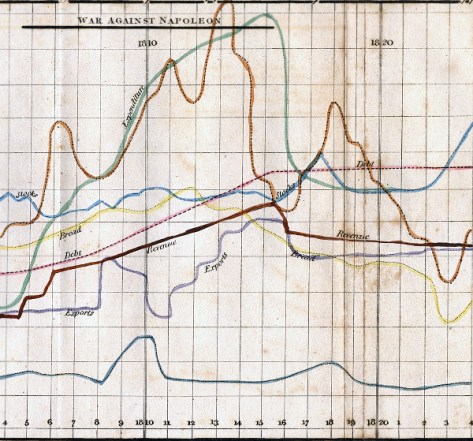
by Gideon Marcus
Since humans have been a species, there has always been a frontier. Whether it be Alaska for the first settlers of the Americas, or the New World (for Europeans), or the Wild West (for White Americans), there has always been an "over there" to explore. Today, our frontiers are the frozen Arctics, the deep seas, and the vastness of orbital space.
Science fiction has always stayed one step ahead. A hundred years ago, Jules Verne took us 20,000 leagues under the sea. A generation later, Edgar Rice Burroughs took us to Darkest Africa, lost continents, and fancifully rendered nearby planets,. Astounding and its ilk of the 30s and 40s gave us scientific jaunts through the solar system.
These days, one is hard-pressed to find stories that take place on Mars or Venus. Now that four men have circled the Earth and probes have flown millions of miles from our planet, tomorrow's frontier lies among the stars. Thus, science fiction has taken up residence in the spacious quarters of the Milky Way, light years away from home.
As you'll see if you pick up this month's most worthy issue of Galaxy:

The Dragon Masters, by Jack Vance
An alien empire known as The Rule has smashed the human federation, reducing the free population of Terrans to a few scattered planets. On one barren world, people are confined to two rocky valleys, their technology regressed to the Renaissance. There is the ever-present threat of attack from the reptilian aliens whenever the nearby red sun, Coralyne, draws near.
But the humans have an ace up their sleeve: generations ago, a raiding vessel was defeated and its complement of aliens impressed into slavery. Since then, they have been bred and specialized into a myriad of soldier castes called "dragons," from the fierce Termagant infantry to the enormous Juggers and Fiends.

Will this baroque force be able to withstand the next inevitable attack of The Rule, who have created their own caricatures of people to be their shock troops and mounts? And what is the role of the weird "sacerdotes," nude ascetic humans who may possess a tremendous hidden technology?
Masters really is an impressive piece of world-building, a page turner that will keep you guessing until the end. I particularly enjoyed the moral questions the novella raises, demonstrating the implicit repugnance in the breeding of sentients by mirroring our raising of "dragons" with the domestication of human animals by The Rule. The only issue which knocks Masters from perfection is I found the combat scenes a bit overlong. Great illustrations by GAUGHAN, though. Four stars.

Handyman, by Frank Banta
Brief moody piece about a prisoner whose solitary confinement even a well-meaning Carpenter can't assuage. Three stars.
For Your Information: Rotating Luminous Wheels in the Sea, by Willy Ley

Our favorite German science popularizer returns with an update on those mysterious luminous pinwheels that have been spotted by mariners over the last half-century. He last wrote about them in the December 1960 and June 1961 issues, and they just get more intriguing. Are they bioluminescent creatures stimulated by propellers? Billboards for Martians? Mass hallucinations? Read and find out. Three stars.
A Matter of Protocol, by Jack Sharkey

Schelling
The adventures of Lieutenant Jerry Norcriss, the psychic xenobiologist who hops into the minds of alien animals as part of pre-colonial surveys, is easily Jack Sharkey's best series to date. In this installment, we see that even the slightest damaging of a symbiotic relationship can be fatal to an ecosystem. Harsh stuff. Three stars.
Three Portraits and a Prayer, by Frederik Pohl
Terminally ill Dr. Rhine Cooperstock is convinced to make one last contribution to science before dying, but when his plowshares are turned into swords, he must sacrifice his last moments to right things. Beautifully told, but the plot strains credulity. Three stars.
Always a Qurono, by Jim Harmon

Leave it to slave-to-routine aliens to break the routine of a set-in-his-ways marooned space captain. Supposed to be a funny piece, but it fails the laugh test. A disappointing turn from a reliable author. Two stars.
The Luck of Magnitudes, by George O. Smith
A fluffy piece on how lucky we are to have been growed on a planet that's not too big, not too small, not too hot, not too cold, but just right. I'm sure the Martians and Venusians have their own versions. Two stars.
One Race Show, by John Jakes

Art is wordless communication, and what could be more universal a subject than the dark recesses of the human soul? But is humanity ready to see its ugliness laid bare and exhibited in art galleries? An interesting topic robbed of its impact by shallowly sardonic delivery. Two stars.
***
Thanks to the dip at the end, this issue wraps up at just 2.9 stars. Nevertheless, this does little credit to Vance's story which, if it's not in quite the same class as Moon Moth, isn't far below. Think of the August 1962 Galaxy as an Ace Double with a superior front and a mediocre back. And at the very least, one gets a peek at a startling number of rich vistas, wild frontiers lying just beyond the current ken of humanity…
(P.S. Don't miss the second Galactic Journey Tele-Conference, July 29th at 11 a.m.! If you can't make it to Worldcon/Chicon III, this is YOUR chance to Vote for the 1962 Hugos!)































